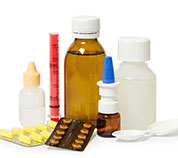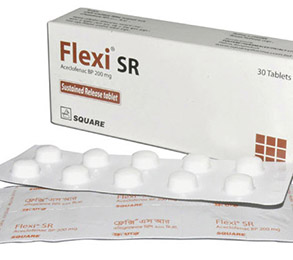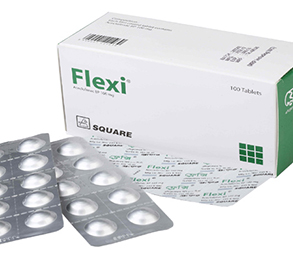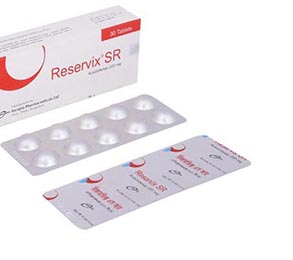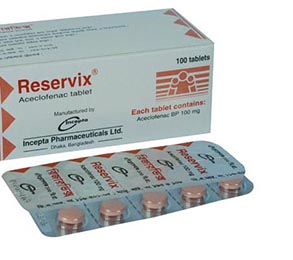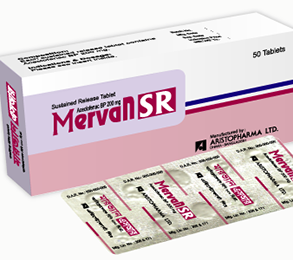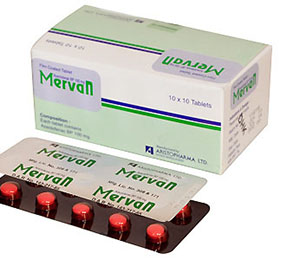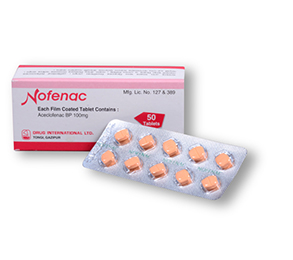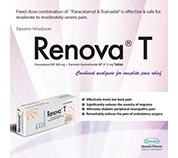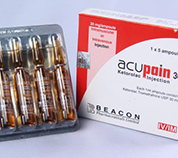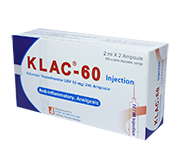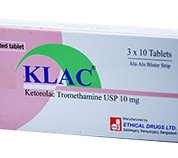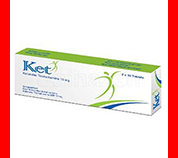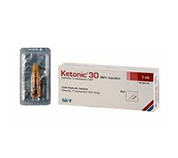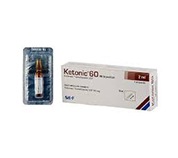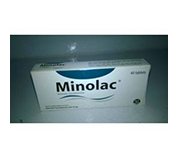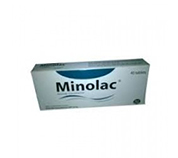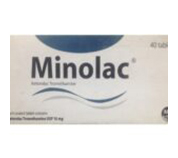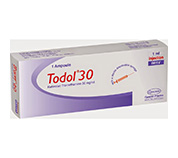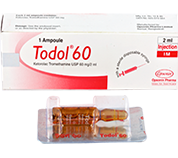Resadol Tab 10 Pcs
Alternative products
Paracetamol + Tramadol Hydrochloride
Indications
This tablet is indicated for-
- The management of moderate to moderately severe pain in adults.
- The short-term (five days or less) management of acute pain.
Pharmacology
Paracetamol has analgesic and antipyretic properties with weak anti-inflammatory activity. Paracetamol (Acetaminophen) is thought to act primarily in the CNS, increasing the pain threshold by inhibiting both isoforms of cyclooxygenase, COX-1, COX-2, and COX-3 enzymes involved in prostaglandin (PG) synthesis. Paracetamol is a para aminophenol derivative, has analgesic and antipyretic properties with weak anti-inflammatory activity. Paracetamol is one of the most widely used, safest and fast acting analgesic. It is well tolerated and free from various side effects of aspirin.
Tramadol is a centrally acting synthetic opioid analgesic. Although its mode of action is not completely understood, from animal tests, at least two complementary mechanisms appear applicable: binding of parent and M1 metabolite to μ-opioid receptors and weak inhibition of the reuptake of norepinephrine and serotonin. Opioid activity is due to both low affinity binding of the parent compound and higher affinity binding of the O-demethylated metabolite M1 to μ-opioid receptors. Tramadol has been shown to inhibit reuptake of norepinephrine and serotonin in vitro, as have some other opioid analgesics.These mechanisms may contribute independently to the overall analgesic profile of tramadol.
Dosage & Administration
For the management of moderate to moderately severe pain: The recommended dose is 1 or 2 tablets every 4 to 6 hours as needed for pain relief up to a maximum of 8 tablets per day.
In case of short-term (five days or less) management of acute pain: The recommended dose is 2 tablets every 4 to 6 hours as needed for pain relief up to a maximum of 8 tablets per day.
This tablet can be administered without regard to food.
* চিকিৎসকের পরামর্শ মোতাবেক ঔষধ সেবন করুন'
Contraindications
Tramadol & Paracetamol combination tablets should not be administered to patients who have previously demonstrated hypersensitivity to tramadol, paracetamol, any other component of this product, or opioids. This is contraindicated in any situation where opioids are contraindicated.
Side Effects
The following adverse reactions may happen to this therapy: asthenia, fatigue, hot flushes, dizziness, headache, tremor, abdominal pain, constipation, diarrhea, dyspepsia, dry mouth, nausea, vomiting, anorexia, anxiety, confusion, euphoria, insomnia, nervousness, somnolence pruritus, rash, increased sweating etc.
Pregnancy & Lactation
Pregnancy Category C. There are no adequate and well-controlled studies in pregnant women. This combination
preparation should be used during pregnancy only if the potential benefit justifies the potential risk to the fetus. This combination preparation is not recommended for obstetrical preoperative medication or for post-delivery analgesia in nursing mothers because its safety in infants and newborns has not been studied.
Precautions & Warnings
- This combination preparation may impair mental or physical abilities required for the performance of potentially hazardous tasks such as driving a car or operating machinery.
- This combination preparation should not be taken with alcohol containing beverages.
- The patient should be instructed not to take this combination preparation in combination with other tramadol or paracetamol-containing products, including over-the-counter preparations.
- This combination preparation should be used with caution when taking medications such as tranquilizers, hypnotics or other opiate containing analgesics.
Use in Special Populations
pediatric use: The safety and effectiveness of this combination preparation have not been studied in the pediatric population.
Geriatric use: In general, dose selection for an elderly patient should be cautious, reflecting the greater frequency of decreased hepatic, renal, or cardiac function; of concomitant disease and multiple drug therapy.
Use in Renal Disease: This combination preparation has not been studied in patients with impaired renal
function. In patients with creatinine clearances of less than 30 ml/min, it is recommended that the dosing interval of this combination preparation be increased but not to exceed 2 tablets every 12 hours.
Use in Hepatic Disease: This combination preparation has not been studied in patients with impaired hepatic function. The use of this combination preparation in patients with hepatic impairment is not recommended.
Therapeutic Class
Non-steroidal Anti-inflammatory Drugs (NSAIDs)
Storage Conditions
Store in a cool and dry place. Do not freeze. Keep all medicines out of the reach of children.
- Type Tablet
- Tag
- Morbi leo risus
- Porta ac consectetur ac
- Vestibulum at eros





